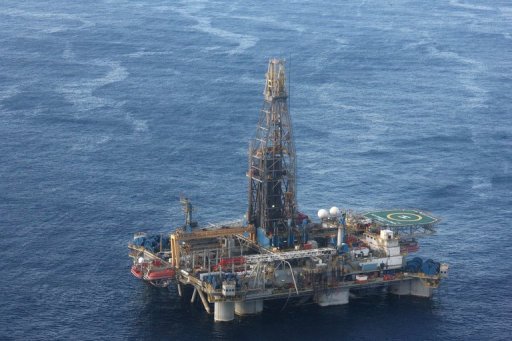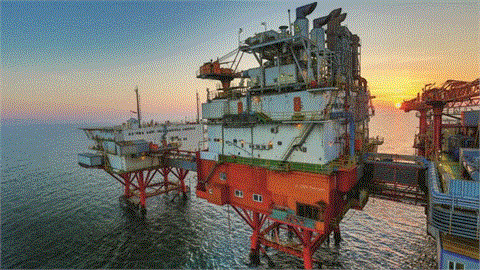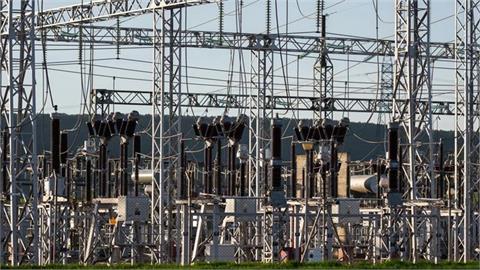by Costis Stambolis* In our latest monthly analysis, part of the Insitute’s "SE Europe Energy Brief”, we explained the basic parameters of the forced bankruptcy of the Republic of Cyprus following the Eurogroup conspiracy of March 15. What should have been a small scale rescue operation of an ailing bank suddenly turned into a major crisis, blown out of all proportions and thus becoming a worrisome instability factor for the whole euro zone
Last summer the government of Cyprus requested financial help from the EU in order to save its banking sector which had suffered huge losses because of its large exposure to Greek government bonds which had undergone a haircut. Instead of helping directly Cyprus’s banks which had the problem originally, through the well tested European Stability Mechanism (ESM), thus breaking the vicious cycle where weak sovereigns bail out weaker banks, the Eurogroup nucleus purposely and without shame decided to lend money directly to the Cyprus government while at the same time insisted on enforced private sector participation, which caused the present crisis and send the economy to the wall.
As The Economist very succinctly put it, "Cypriots have cause to lament that its rescuers made a desert and called it peace.” The tiny economy, just 0.2 per cent of the Eurozone’s total GDP, has suffered a massive blow. Earlier forecasts by the European Commission that the island’s economy would shrink by 5% over the next two years were bad enough. Now economists in Cyprus estimate that this year the economy may contract by as much as 12 to15% rendering debt –sustainability forecasts irrelevant.
And the question that now arises, following the collapse of Cyprus’s
banking system and the damage to the country’s credibility, is what
model, it any, could be applied to help restart the island’s economy.
Tourism is certainly one area of the economy which can be further
developed but it is held back by higher costs associated with the euro.
The other sector is hydrocarbons which is just emerging following the
discovery of significant gas deposits in an offshore section which
belongs to Cyprus Economic Exclusion Zone (EEZ). USA oil company Noble Energy
announced in late 2011 that it had found an estimated seven (7)
trillion cubic feet of gas or 200 billion cubic meters. That pales
against the reserves held by major producers but it is significant for a
country like Cyprus which is currently totally oil dependent and whose
energy needs do not exceed 80 billion cubic feet a year. A consumption
that leaves considerable margin for exports to Europe and to the global
markets.
A second exploratory drilling by Noble has been planned for later this
year in order to ascertain in greater detail the deposit already
discovered. The size of the Aphrodite gas field is not insignificant
and according to some estimates it could meet German gas demand for
three years. And Cyprus certainly hopes that a lot more gas will be
found. Earlier this year it sold further exploration licenses to Eni, Total and Kogas,
all well known and well funded international companies. According to
oil geologists Cyprus offshore deposits may hold as much as 60
trillion cubic feet of gas or approx 1.7 trillion cubic meters, which
is of the same order of magnitude as that of Azerbaijan. With only
Noble's discovery confirmed so far, it is too early to substantiate the
60 trillion cubic feet reserve estimate, according to energy
consultants Wood Mackenzie.
The present uncertainties are reflected in the range of valuations for Aphrodite. Cyprus's state-owned oil-and-gas company Kretyk reckons it could earn around $50 billion from its gas fields over the next 25 years, assuming European gas prices remain at around their current level. Others are more circumspect Earnings could range from €5 billion to €32 billion ($6.5 billion to $41.4 billion) over 20 years, based on a range of prices and exploration success rates, Morgan Stanley estimates. Such value uncertainties limit the gas reserves' worth as, say, collateral for any loan to Cyprus.
On the other hand using the island’s gas reserves to raise money in the international markets is a rather foolish option given the country’s perilous financial condition and the total control of its economic and monetary policies by the German lead Eurogroup. A gas linked international bond would only strengthen the Troika’s position and could sooner or later have Cyprus’s gas reserves offered on a plate to the country’s creditors. Looking at gas as potential new resource capable of revitalizing the economy one has to realise that Cypriot gas production may not materialise until 2019, even on an optimistic timetable. With most of the gas more than 1,500 meters, or 4,921 feet, below sea level, production could prove costly. Building a gas pipeline to Greece is likely to be expensive and logistically complex, so Cyprus’s government its having as priority the building of a liquefaction plant so as to produce and export gas in LNG form, an investment estimated to reach some 10.0 billion dollars. Nor has Cyprus finalized yet a fiscal or regulatory regime for gas production.
But with global gas supplies becoming more ample, Cyprus's resource may have only marginal strategic benefit. However, Cyprus is not alone in the gas game. According to many analysts Israel stands to be the main beneficiary of the Eastern Mediterranean’s bounty, due mainly to the geographic distribution of recent discoveries which are bordering, through its own EEZ, with Cyprus. In 2009 and 2010, a pair of U.S.-Israeli consortiums exploring the seabed near Haifa discovered the Tamar and Leviathan fields, which collectively hold an estimated 26 trillion cubic feet (tcf) of natural gas. The timing of these discoveries was opportune. Since the beginning of the Arab Spring, Israel has suffered frequent supply interruptions and the eventual termination of its contract with Egypt, which had previously provided 40 percent of the gas Israel consumed, at below-market rates. The Tamar and Leviathan fields, once fully developed, could satisfy Israel’s electricity needs for the next 30 years and even allow it to become a net energy exporter. It is significant note that since early April gas production from Tamar has started flowing ashore and is already providing for Israel’s power supply needs.
Israel’s gas export options remain strong but priority is currently given to covering domestic needs. Some of Israel’s gas exports could be realised in partnership with Cyprus on the grounds of geography and security. Indeed, a 5.0 million tons per year liquefaction plant to be built in the Vasilikos area could serve a large part of Israel’s gas exports.
Like the Turkish controlled Northern Cyprus and Lebanon, Turkey has viewed the Israeli-Cypriot gas bonanza with apprehension. Turkey, which invaded the northern part of Cyprus in 1974 to prevent a coup aimed at uniting the island with Greece, doesn’t recognize the Greek- Cypriot government in Nicosia. Ankara maintains that unilateral exploitation of natural resources is against Turkish –Cypriot interests and continued United Nations efforts to reunify the island. Ankara does not recognize either Cyprus’ border agreements with its neighbours and fears that Turkish Cypriots will be excluded from Nicosia’s future gas profits. Turkey also sees a possible gas export route through Cyprus and Greece as a threat to its own ambitions as a transit country feeding Caspian and Central Asian gas to the European market. Ankara has thus protested the cooperation between Israel and Cyprus and supported Lebanon’s position in boundary disputes with Israel. Upping the ante, Turkey in September 2011 scheduled major naval exercises to coincide with drilling by Greek Cypriot contractors USA company Noble Energy and sent its own exploration vessels to disputed waters, threatening to drill on behalf of Turkish Cypriots in the Aphrodite field - which lies partly within Israel's economic zone.
If should be noted that at the time the USA government send a stern warning to Turkey to keep away from Cyprus EEZ and Noble Energy’s drilling activity while both Russia and the EU issued clearly worded statements supporting Cyprus’s right to prospect and drill within its international recognized sea boundaries.
Inspite of Turkey’s apprehension, since being the major energy power in the region does not obviously want to see a competitive energy hub emerging in its southern flank, Cyprus is pressing ahead with its plans for the full development of its hydrocarbon resources protected by International Law of the Sea provisions, which form part of EU legislation. The Cypriot government’s position as an emerging energy player in the region is further strengthened by the fact that already four major international companies – Noble, Total, ENI and Kogas – have signed concession agreements and are actively engaged with development programmes which are likely to lead to substantial new oil and gas discoveries.
In that sense the utilization of Cyprus’s hydrocarbon deposits are expected to play a key role in restarting the island’s economy and providing a solid base for economic growth and employment for years to come.
*Executive Director of the Institute of Energy for South East Europe (IENE)
(source: Financial Mirror, 02 May, 2013
http://www.financialmirror.com/blog-details.php?nid=1060)




